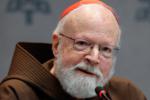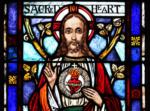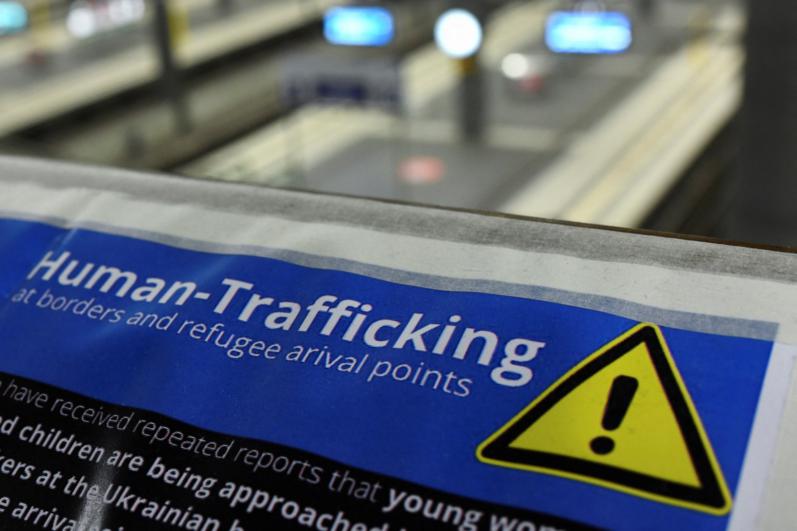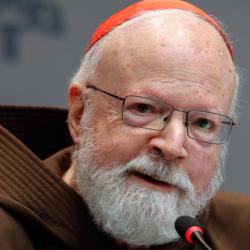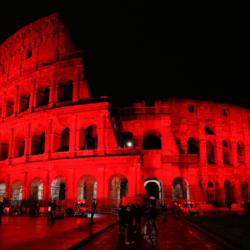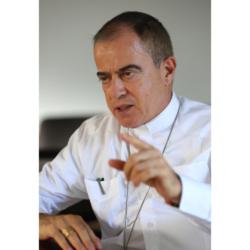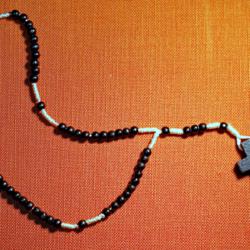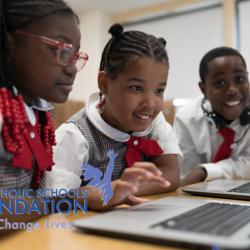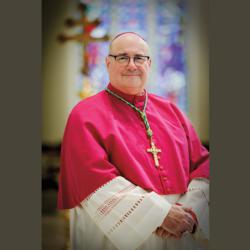U.S. sisters mark 10 years fighting human trafficking, ready to continue 'for a long, long time'
(OSV News) -- Just over 10 years ago, Sister Margaret Nacke -- a Sister of St. Joseph of Concordia, Kansas -- was living in Belleville, a Kansas town known as "the crossroads of America," where U.S. Highways 36 and 81 intersect.On a December day in 2012, she was pondering a particular question."I said to myself, 'What are religious sisters doing across the country to stop human trafficking?'" Sister Nacke told OSV News. "So I picked up the phone and called the Leadership Conference of Women Religious."Sister Nacke told Sister Ann Scholz, a School Sister of Notre Dame and associate director for social mission at LCWR, that she wanted to establish a collaborative data bank through which sisters could pool their knowledge on trafficking. Sister Scholz, she said, promised to raise the idea at the LCWR's upcoming meeting and to alert the organization's point persons for justice and peace initiatives.
"I started hearing from sisters all over," said Sister Nacke.
LCWR represents the majority of the almost 39,000 women religious in the U.S.
In April 2013, several Catholic sisters were invited by the Obama administration to attend the release of its policy priorities, which included addressing an epidemic of human trafficking in the U.S.Today, U.S. Catholic Sisters Against Human Trafficking (USCSAHT), as the coalition came to be known, counts more than 115 congregations of women religious, individual members, faith-based coalitions and secular organizations.The Archdiocese of Atlanta, the Human Trafficking Force of the Diocese of Orlando, Florida, and the Catholic Health Association are among the members of USCSAHT, which in turn is part of Talitha Kum, an international umbrella organization of anti-trafficking efforts by women religious, based in Rome and named for Christ's words in Aramaic ("Little girl, arise") at the raising of Jairus' daughter (Mk 5:41).USCSAHT has created a robust website featuring an array of resources for advocates and survivors, and since 2003 has published the monthly "Stop Trafficking" newsletter, launched by Salvatorian Sister Jean Schafer and currently edited by Felician Sister Maryann Mueller.The group, which provides regular presentations, also will host a Sept. 28-30 conference in Skokie, Illinois, on "Breaking Barriers to End Human Trafficking."Along with Talitha Kum, USCSAHT member groups are united to counter a global problem that affects close to 50 million victims globally through both forced labor and forced marriage, according to the United Nations' International Labor Organization.Children represent 12% of those enslaved by forced labor, with more than half in commercial sexual exploitation, according to ILO data.Sister Ann Oestreich, a Sister of the Immaculate Heart of Mary and USCSAHT president, told OSV News the organization focuses on three pillars -- education, advocacy and access to survivor services -- with the first particularly critical."There are still so many people in our country who don't realize this is happening," she said. "And we know it's happening everywhere, in every zip code of our country."With their global networks of congregations and associations, and their direct contact with vulnerable populations, women religious are well-positioned to battle human trafficking, said Sister Nacke and Sister Oestreich."In 2012, I was working for the Sisters of the Holy Cross in South Bend (Indiana), and they were being informed by their Asian and African sisters as to what was happening (with trafficking)," said Sister Oestreich. "I was the social justice coordinator at the time, and the congregation leadership said, 'We really need to make our sisters in this hemisphere more aware of this issue.'"Sister Nacke said she has focused on training Catholic hospital staff "to recognize victims when they appear for health care," adding she was "very, very happy" about the receptivity of medical professionals she has trained.USCSAHT members also provide life skills to trafficking survivors, who are overwhelmingly made vulnerable to predators through poverty, abuse, lack of education, conflict, migration, social isolation and natural disasters, said Sister Nacke and Sister Oestreich.Women who have completed survivor programs at USCSAHT member-run houses, where residents can find healing and rehabilitation, are eligible for "small or partial scholarships so they can be empowered to (leave behind) the life they knew in human trafficking," said Sister Oestreich.Although "traffickers work with a budget of $150 billion per year," USCSAHT remains undaunted, she added.
"We won't go away," said Sister Oestreich. "They'll have to contend with us for a long, long time."
- - - Gina Christian is a national reporter for OSV News. Follow her on Twitter at @GinaJesseReina.- - - BRIEF: BRIGHTON, Mich. (OSV News) -- U.S. Catholic Sisters Against Human Trafficking (USCSAHT) is marking its 10th anniversary, now counting more than 115 congregations of women religious, individual members, faith-based coalitions and secular organizations. The group began in 2013 after Sister Margaret Nacke, a Sister of St. Joseph of Concordia, Kansas, asked what religious sisters in the U.S. were doing to counter what is now a global issue affecting some 50 million victims. USCSAHT, part of the international Talitha Kum organization in Rome, provides an array of resources based on education, advocacy and access to survivor services. USCSAHT is committed to pursuing justice and healing for those victimized by trafficking, said president and Immaculate Heart of Mary Sister Ann Oestreich. "We won't go away," she said. "They'll have to contend with us for a long, long time."



